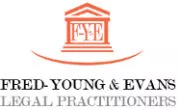On 7th August 2020, President Muhammadu Buhari of Nigeria signed the amended Companies and Allied Matters Act into law ("the amended CAMA") Whilst the new law adopted most of the provisions in the Companies and Allied Matters Act, 1990, it introduces some new provisions for the purpose of entrenching the ease of doing business in Nigeria and to ensure that the practice of business entities meets international standards and modern corporate governance principles. The new provisions will indeed improve the management and productivity businesses in Nigeria.
Formation of a Company
Section 18 of the amended CAMA provides that any 2 (two) or more persons may form a company. However a person may form a private company under Section 18 (2). This means under the amended CAMA, a single natural or legal person can be the sole shareholder of a company. Section 20 (4) provides that subject to the provisions on capacity of a foreigner and foreign company to participate in business in Nigeria, a foreigner or foreign company may join in forming a company in Nigeria.
Section 22 (2) (a) provides that a private company shall not sell assets which has the value of more than 50% of a company's assets without the consent of all its shareholders. Section 22 (2) (b) provides that a shareholder of a private company shall not sell its shares in the company to a non-shareholder without first offering the shares to existing shareholders. Section 22 (2) (c) provides that shareholders of a company shall not act together to sell 50% shares in a private company to a non-shareholder except the non-shareholder has agreed to buy the shares of all the existing shareholders on the same terms.
Section 26 (5) gives the Attorney General of the Federation a period of 30 (thirty) days to grant authority to a promoter to incorporate a company limited by guarantee. Section 26 (12) increases the liability of members of a company limited by guarantee in case of winding up to 100, 000 (One Hundred Thousand naira). Section 26 (13) provides that a member of a company limited by guarantee may be removed or retired by a special resolution filed at the Companies' Registry ("the Registry").
Under Section 27 (2), the minimum share capital of a private company limited by shares has been increased to 100, 000 (One Hundred Thousand naira) while that of a public company limited by shares is 2, 000, 000 (Two Million naira).
Section 30 (1) provides that a company shall change its name within 6 (six) weeks of the Registry's notice that its name is identical to the name of a previously registered company. A company who fails to change its name within the time specified in the Registry's notice, shall be liable to pay penalty as may be prescribed by the Registry for each day of default. Section 31 (1) provides for reservation of name by electronic means. Section 31 (3) provides that notwithstanding the reservation of name, the Registry may at any time before the issuance of Certificate of Incorporation, withdraw or cancel a reserved name if it is identical with the name of a previously registered company.
Section 33 (2) and (3) provides that different model articles may be prescribed for different companies and a company may adopt all or any of the provision of the model articles. Section 35 (1) provides that unless a company's articles specifically restrict the objects of the company, its objects shall be unrestricted. This means a registered company can go into any legal business as long as its articles does not prohibit same.
Under Section 40 (1), the Statement of Compliance for registration of a company may be signed by the applicant, his agent or a legal practitioner. Technically, this means any person who wants to do business in Nigeria, may incorporate his company personally, or through his agent or legal practitioner.
Section 852 (4) provides that no company or business shall be registered where there is irrefutable evidence that it has previously been involved in fraudulent trade malpractices either in Nigeria or abroad. Section 853 (1) provides that a promoter whose business is regulated by a government agency must obtain approval for the name before applying for reservation of same with the Registry. Under Section 863 (2), it is an offence for any individual, corporation or association to carry on business in Nigeria without registration.
Management and Operation of a Company
Section 89 provides that any act of shareholders in a general meeting, Board of Directors, or a Managing Director in the course of their business binds the company and will be treated as the act of the company which will bind it criminally and civilly like a natural person, except the person who relied on the decision of the shareholders, Board or Managing Director knew they had no power to act to bind the company.
Section 98 provides that a company must not have a company seal. Section 99 provides that where the articles permit, a company with operations outside Nigeria may have a seal which shall indicate the territory where it is to be used. Section 100 provides that a company may by a deed empower any person either generally or specifically to act on its behalf as its attorney either in Nigeria or outside Nigeria.
Section 101 provides that a company document may be signed by a director, a secretary or other authorized officer of the company and need not be by deed. An electronic signature is deemed to satisfy the requirement for signing.
Section 119 (1) and (2) provides that any person in significant control over a company shall within 7 (seven) days of coming into control of the company, indicate to the company in writing the particulars of such control and the company shall in turn disclose same to the Registry. This control shall be reflected in the annual returns of the company for the respective year.
Section 120 (1) and (2) provides that any person who holds 5% unrestricted voting rights in a public company is a substantial shareholder who shall give full particulars of his shares in the company within 14 (Fourteen) days and the company shall in turn inform the Registry of same within 14 (Fourteen) days of receiving the notice. Section 121 (1) (2) provides that a person who ceases to be a substantial shareholder shall notify the company within 14 (Fourteen) days and the company shall in turn notify the Registry of same within 14 (Fourteen) days of such notice.
Company Shares
Under Section 149 (1), the power to allot shares is vested in the company but this power may be delegated to the Board of Directors in the articles. Section 147 provides that a company shall not issue any preferential shares which are irredeemable. A company may issue preferential shares which are redeemed subject to conditions in the company articles. Section 174 provides that no company shall issue bearer shares. Bearer shares are shares which are represented in a certificate and indicate that the bearer of the shares is the owner of the shares.
Section 160 provides that where the articles permit, the shares of a company and any premium shall be paid up in cash and by other valuable consideration other than cash or partly cash and partly valuable consideration. Section 161 (2) provides that where a person sells a property or render a service to a company in exchange for issuance of shares, the amount on the property or services shall be deducted from the amount of cash payment for the shares and only the balance shall be treated as having been paid for in cash for the shares.
Section 162 provides that where a public company agrees to accept payment for its share otherwise than by cash, it shall appoint an independent valuer who shall determine what the value of the consideration other than cash is and prepare a report of the value of the consideration to the company.
Section 184 provides that a limited liability company may purchase its own shares including redeemable shares if the company's articles provide for it; the shareholders by special resolution approve the acquisition of the shares; the shares is paid up in full; a notice of purchase of its shares is published in 2 (two) national newspapers; filing of a Statutory Declaration of Solvency at the Registry within 15 (Fifteen) days after the publication to the effect that the company can pay its debts upon purchase of its shares and shall remain solvent after the purchase. The company shall not purchase its shares if after such purchase there would no longer be issued shares other than redeemable shares or treasury shares. Section 175 allows for electronic instrument of transfer of shares.
Company Meetings and Resolutions
Section 240 (1) permits small companies and companies having a single shareholder to hold their annual general meeting either in Nigeria or abroad. Big companies and public companies must hold their annual general meeting in Nigeria. Section 240 (2) provides that a private company may hold its annual general meeting electronically once the meeting is conducted in line with the company's articles. Under Section 244 (3), notice of meeting may be given by electronic mail. Section 250 (3) maintains the second or casting votes of the chairman of a general meeting where there is an equality of votes.
Section 266 (4) (a) provides that where a company has one shareholder, when the shareholder takes a decision which should have been taken by a company in general meeting , the decision will have the same effect as if it was taken by a company in general meeting provided the Board is provided with details of the decision.
Directors
Section 275 provides that a public company shall have at least 3 (three) independent directors who within 2 (two) years before their appointment, were not employees of the company; did not receive payment of more than 20, 000, 000 (Twenty Million naira) from the company; do not own 30% shares in the company; and was not engaged directly or indirectly as an auditor of the company.
Section 297 provides that no payment shall be made to a director of a company for his removal except such payment is disclosed to the shareholders and approved by them.
Section 307 (1) provides that a person's fiduciary duty cannot be derogated even if he is a director in several companies. Section 307 (2) provides that a person shall not be a director in more than 5 (five) public companies.
Section 325 provides that the Registry shall omit personal information of the directors from materials which are available for public inspection. However, the protected information may be disclosed by Court order under Section 327.
Company Secretary
Section 330 provides that apart from small companies, every company shall have a company secretary. Section 394 provides that a small company must be a private company whose turnover is not more than 120, 000, 000 (One Hundred and Twenty Million naira) and net assets value is not more than 60, 000, 000 (Sixty Million naira). None of its shareholders must be foreigner or a government or government agency. The directors must hold at least 51% shares in the company.
Protection of minority shareholders
Section 342 provides that in a major asset transaction which is an acquisition outside the course of the company's business or sale of 50% of the company assets, the Board of Directors shall submit the transaction for approval of the shareholders at an annual general meeting or extra ordinary general meeting. Section 342 (2) (b) provides that notice of the transaction shall state the nature of the transaction and approved by special resolution except the memorandum and articles of association of the company provides that it should be approved by ordinary resolution.
Annual Returns and Financial Statements
Section 374 (6) provides that every public company shall display its audited accounts on its website. Section 402 provides that a company is exempted from audit requirement if it has not carried on business or is a small company.
Section 405 (1) provides that a Chief Executive Officer and Chief Financial Officer of a company other than a small company shall certify in the audited financial statement that the officers who signed the statement have reviewed them based on their knowledge and the statement does not contain untrue statement and represent the true financial position of the company during the relevant period. Section 406 provides that it is an offence for a director or other officer to influence or manipulate an external auditor in the preparation of financial statement of a company.
Proceedings to rescue an insolvent company
Section 443 and Section 444 provides that a person may be appointed as an administrator of a company by court order, a holder of a floating charge or company director for the purpose of taking steps to rescue an insolvent company and make it a going concern.
Section 447 (1) provides that except presented on ground of public policy, a petition for the winding up of a company shall be dismissed or suspended upon making an administration order. Upon an administration order, a receiver of a company or holder of floating charge shall vacate office.
Miscellaneous Provisions
Section 723 (1) provides that the provisions of the amended CAMA overrides the provisions of a company's memorandum and articles of association.
Section 851 (1) provides that the Registry shall establish an Administrative Proceedings Committee to hear and resolve disputes arising from the Registry's operations and the provisions of the amended CAMA.
New Arrangements
Section 718 provides for netting agreement and Section 721 provides for enforceability of netting agreements.
New Entities
Section 753 introduces incorporation of limited liability partnerships of 2 (two) or more persons associated for the purpose of carrying lawful businesses for profits. Section 788 provides for foreign limited liability partnership to be incorporated in Nigeria to carry on business. Section 795 provides for incorporation of limited partnership to carry on business in Nigeria.
The content of this article is intended to provide a general guide to the subject matter. Specialist advice should be sought about your specific circumstances.




